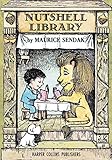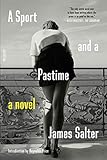I. The other day, while looking for books to buy my future nephew, I recalled The Real Mother Goose, a classic I had loved as a kid. I could conjure the cover, with its illustration of a witch and a baby, riding a giant, flying bird (a goose, I guess). And the border was checkered – the squares were black and white. I remembered the size of the book in my small hands, and the texture of its cover, and the thickness of the pages inside. It thrilled me to think that my sister’s son might hold this book, and love it, like I had.
The other day, while looking for books to buy my future nephew, I recalled The Real Mother Goose, a classic I had loved as a kid. I could conjure the cover, with its illustration of a witch and a baby, riding a giant, flying bird (a goose, I guess). And the border was checkered – the squares were black and white. I remembered the size of the book in my small hands, and the texture of its cover, and the thickness of the pages inside. It thrilled me to think that my sister’s son might hold this book, and love it, like I had.
 For a period, novelist Katherine Taylor brought The Mystery Guest by Gregoire Bouillier to dinner parties. “Wine is boring,” she told me. “Books last longer.” Later, she took to giving everyone Arlington Park by Rachel Cusk, which, she said, “is not as dinner-party appropriate, but it was a gorgeous and largely overlooked book I thought my clever friends should read.” Now Ms. Taylor has moved onto handing out Maurice Sendak’s The Nutshell Library.
For a period, novelist Katherine Taylor brought The Mystery Guest by Gregoire Bouillier to dinner parties. “Wine is boring,” she told me. “Books last longer.” Later, she took to giving everyone Arlington Park by Rachel Cusk, which, she said, “is not as dinner-party appropriate, but it was a gorgeous and largely overlooked book I thought my clever friends should read.” Now Ms. Taylor has moved onto handing out Maurice Sendak’s The Nutshell Library.
My husband and I met and became friends in the summer of 2000 as coworkers at Book Soup. At the end of the summer, when I was due to return to Oberlin College in Ohio, he gave me a copy of Goodbye Columbus. On the first page, he had written a note: “Edan – For the summer. Thanks. Patrick.” Of course we got married.
I love giving and getting books as gifts, and I’ve been wondering lately how the digital age will alter this ritual. Don’t get me wrong: I am not against the electronic book. As others have pointed out, ebooks will most likely inspire consumers to be more adventurous in their reading tastes. Nothing will go out of print, and the convenience is obvious. (I kind of want to read Infinite Jest on my iPhone – imagine how light it would be. Wait a minute… I don’t have an iPhone!) Once DRM goes away, and it will, the pass-it-on aspect of books will just explode. Book as mp3. Book as gossip. (If only that sexual astrology paperback we passed around in ninth grade had been digital…) In general, the ebook is a good thing for readers and writers. I prefer reading paperback novels, but if someone wants to read the book I’m writing on a fancy device, that sounds okay.
So, let me make this clear: I’m not announcing the purity of print books over their digital brethren. I don’t want to wax poetic (not too much, anyway) about the sensual pleasures of print books, how they feel and smell, the weight of them – although that must account for something, because what fun will it be to receive an ebook for your birthday? Will anyone even bother? The emergence of a new technology implies the death of another, and the rise of the ebook could mean that no one will ever again give you a novel for hosting a dinner party. I think I’m in mourning.
II.
Why do people give books as gifts, anyway? I don’t mean just any book, but a specific book. Why did Patrick give me that copy of Philip Roth’s first novel? What did it imply?
 Last week, a woman came into the bookstore to get a copy of A Sport and a Pastime by James Salter. She said she always gives it as a gift to people she’s getting to know. Those who love the novel as much as she does become her friends for life.
Last week, a woman came into the bookstore to get a copy of A Sport and a Pastime by James Salter. She said she always gives it as a gift to people she’s getting to know. Those who love the novel as much as she does become her friends for life.
I have a friend who likes to give Milan Kundera’s The Unbearable Lightness of Being to women he’s interested in romantically. I told him he shouldn’t be dating anyone who hasn’t already read it.
For many of us, books are cultural signifiers: if you like this, you will like that, and I will like you. A book serves as an aesthetic litmus test, a conversation starter, a way to understand one another through a third party. The act of giving someone a book is an important performance; it’s not just the book, but the exchange itself, and that’s why a digital copy won’t mean as much. You could email someone a love letter, but if you write it by hand… Well then.
So, this: Reading is both a public and private act. It’s private in the sense that no amount of discourse can mirror or capture the intimate experience a reader has with a book and its author. But that discourse is precisely why it’s public – the blog posts, the reviews, the conversations over coffee, all of that affects and informs your reading experience. When you give someone a book you love, you’re inviting them to understand a private encounter you had with a text. It’s the fusing of the public and the private, the social and the intimate.
III.
I’ve recently realized that I’m also mourning reading in public, because e-readers will change that game as well. If a book is a cultural signifier, then the act of reading a book in public conveys important information to other readers. I always check out what people are reading: in coffee houses, at the beach, in bars, on airplanes. I am taking note, I am building a reader’s identity. It’s like – what kind of jeans is your soul wearing? It saddens me deeply to think about how this kind of signal will be lost with the popularity of ebook devices. What can an anonymous Kindle tell me about your inner life, and about what entertains you?
Of course, the privacy of an e-reader is appealing, too. There are times when I want my private experience of reading to be just that – private. With a Kindle, I could read Stephenie Meyer on the bus without embarrassment. When I’m reading David Foster Wallace on my (nonexistent) iPhone, I won’t have to worry about some geeky douchebag hitting on me.
Again, I see the value of this new technology. I get it. I just can’t seem to let go of what will be lost…





